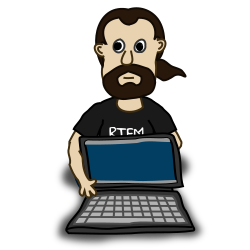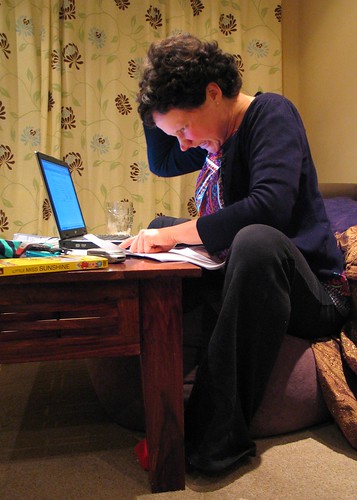It's happened very rarely, but it has been done. An author comes forward with a style or an idea that's so unusual, so outside-the-box, they distinguish themselves for ever. Lewis Carroll invented words. Harriet Beecher Stowe wrote about what it was really like to be a black American...in the 1860s. And Jane Austen, single and never married, wrote so beautifully about love that girls still flock to read her boots 160 years after the fact. So can you do something unusual and interesting, too? Can you write a story with many main characters...or with no main character?
Thinking Outside the Box
The first time I saw The Neverending Story, I thought it was the most amazing movie ever made. I immediately loved it and wanted to watch it again and again (and I did). Now, ask me why.
Because I identified with, and immediately liked, Bastian. He's the little boy who's reading the book. I also read books! I'm not a little boy, and I didn't live in a big city like him, and I sure as heck would never have gone into any scary school store room by myself with a piece of fruit in the middle of a storm...but yeah, I know what it is to get swept up in a story, so carried away that it becomes the most important thing. Bastian was a main character, and he was the glue that held that whole story together. Eliminate him from The Neverending Story, and you've just got a weirdo in a loincloth talking to rocks. I definitely can't identify with any of that.
I like a single
main character, and this is what works for a goodly amount of stories. But there are other ways to write a book.
If your story has no main character, maybe it's because you have several main characters. Maybe you're telling several seemingly separate stories revolving around small casts of characters, and in the end these disparate plots merge into one mind-blowing experience. But here's the problem: I'm not a group of people or an entire cast. I am one person. I want to read about one person that I can latch onto. I want to love them, or hate them, cheer for them or actively root against them. I'm an individual, and I want to put my focus on an individual in your book.
If you divide my attention between several main characters, I may be unable to adequately drum up enough big emotion for any one of them. The worst thing you can do for your book is to create any sense of ambivalence. Get me passionate, get me laughing, get me crying -- get me feeling anything but apathetic. If you stretch my attentions and my emotions too thin among a big ensemble cast, the end result is that I won't really give a crap about any of them. So tread lightly if you're taking a many-character approach.
Taking a we-are-the-world approach, are we? Maybe you envision a brave new world of writing with no main character. Maybe you're detailing a catastrophic event in your story, and switching
POV to different people with every new chapter. I visit with each, but never really linger. It's a bold plan.
Once again, I need someone to latch onto in order to develop the necessary emotion. If I know that you're just going to introduce me to someone new soon, what difference does it really make to me that Carol just died in Chapter 5? Now I'm hearing all about Jim, and he's pretty cool, so that's a do-over. You're basically hitting the reset button on your story over and over, and my emotions are getting engaged only briefly or not at all. If there's no longevity and no character development, what difference does any of it make?
There are pitfalls to this approach, but if it's done well you can get me to care about something to make your story stick. If the people aren't touching me, maybe it's the setting that holds the story together. It's very possible to make human readers care about an inanimate object -- I wasn't the only person who cried when Wilson drowned in Cast Away, I know I'm not.
It's very common to see stories that revolve around a small group of main characters; two to five is just about right for a small, close-knit cast of characters. If these characters are linked in some way, this is an interesting way to show different sides of your characters. The reader gets the chance to see each character through the other's eyes, and the changing perspectives can add a rich new dimension to the story.
Building a story around a few main characters is a good way to make your book identifiable to a broad range of readers. Think Sex & the City. Women of all ages love deciding which one of the four women they are (clearly I'm a Carrie) -- and you can see how it goes.
The answer to the question is
yes. You can do whatever you like in your own book, and you should do whatever feels right to you to tell the story that you need to tell. A character doesn't have to be a stand-alone star, and you don't have to write your book using a certain formula. No matter how many characters you write, they simply need to be strong,
well-crafted characters. Make them fully dimensional, real people, and that will make them more identifiable.
























